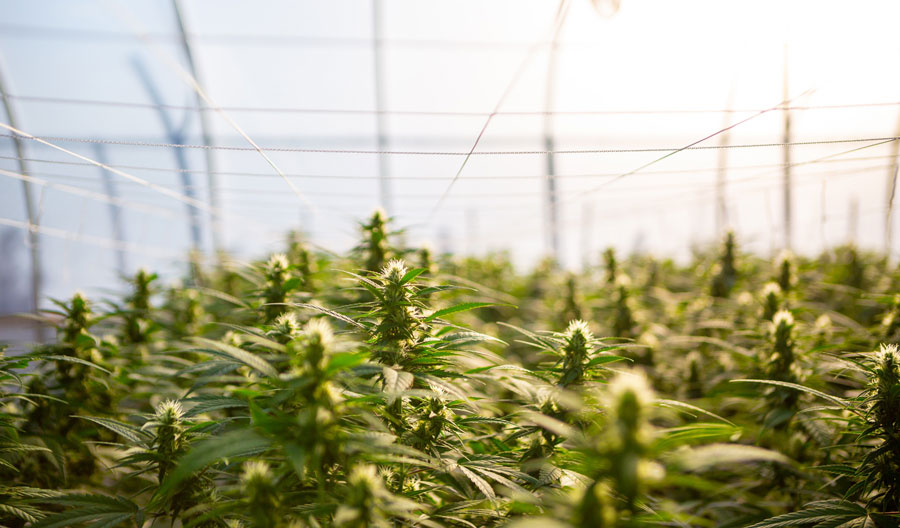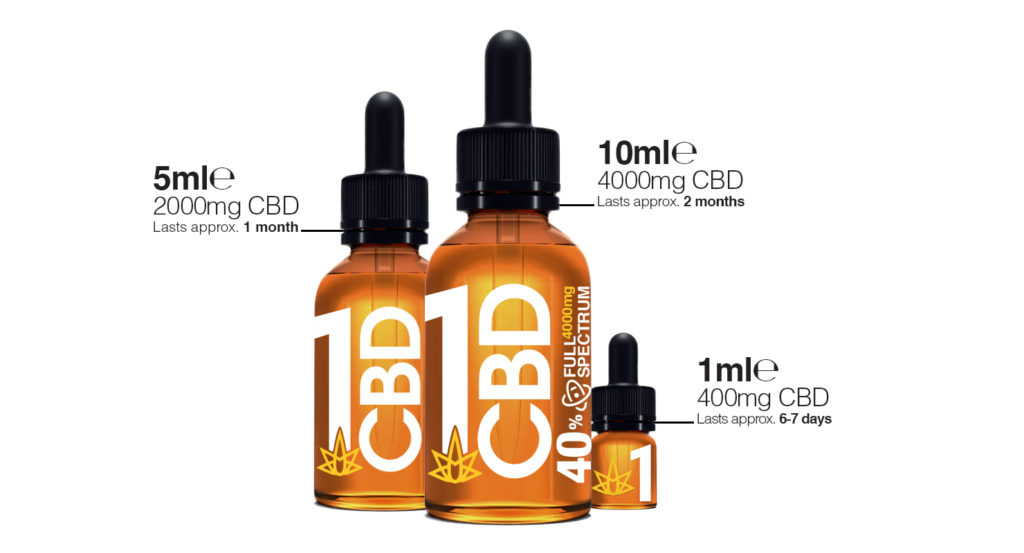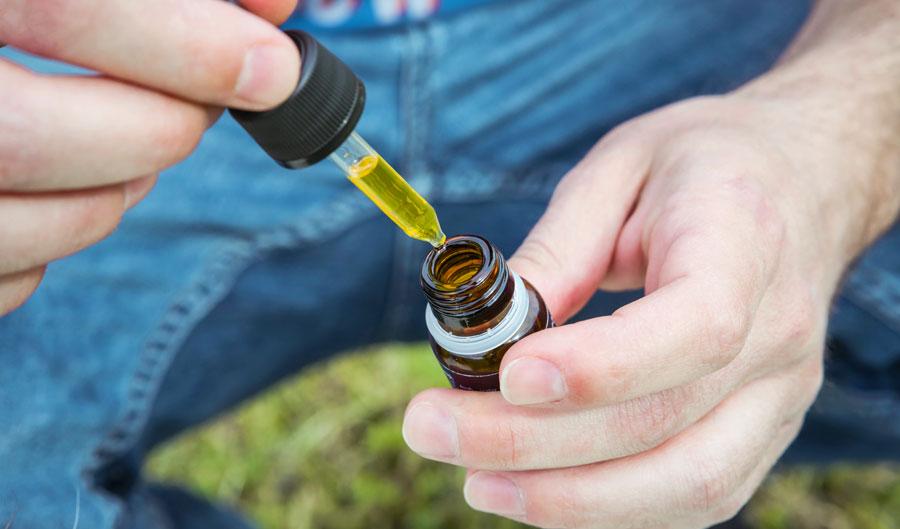
With CBD being a relatively new introduction into the world of nutritional supplements, it’s only natural to have questions about it – especially when it’s so closely tied to the class B drug, cannabis.
We first saw the supplement hit our shelves at the beginning of 2018, and has since gained popularity in health shops, vape stores and online in various different forms, but what do people really want to know about CBD? We’ve had a look at 5 of the most common questions and answered them for you.
-
What is CBD?
Perhaps unsurprisingly, “what is CBD” is one of the most googled questions about the substance, and we can hardly blame anyone searching for it. After all, it’s important to know what you’re taking and where it comes from.
CBD is an acronym for “cannabidiol”, and is a cannabinoid that’s found in various plants belonging to the cannabis family. Most commonly, CBD is extracted from industrial hemp, and can be turned into oil. This can then be ingested or turned into other products such as balms or edibles, like gummies and chocolate.
CBD as we know it is a nutritional supplement, and is thought to aid sleep, have relaxing qualities, and in some cases, even reduce pain. However, studies into the benefits of CBD are still in their infancy, and currently don’t have enough scientific or medical evidence to support these claims, though anecdotal evidence online shows many people that feel a benefit from using CBD products.

-
Does CBD get you high?
Given that CBD is so closely linked with the class B drug, cannabis, it’s not surprising that one of the top questions people want to know is whether or not CBD can get you “high”. The answer is quite simply, No.
It’s a pretty common misconception that taking CBD can get you high, but the fact is that it doesn’t contain the compound needed to produce psychoactive effects. The high associated with smoking marijuana illegally comes from a different cannabinoid – THC. THC can interact with certain receptors in the brain to cause effects such as feelings of euphoria, sleepiness, and in some cases, heightened anxiety or paranoia.
CBD doesn’t actually contain enough THC to cause these effects, and cannabidiol itself can’t cause them on its own, as it doesn’t interact with the receptors the same way. In fact, it might even have the opposite effect, as studies show that CBD can actually help to reduce the psychoactive effects of THC.
If you’re wanting to buy CBD oil or other products, you can rest assured that it shouldn’t make you feel stoned. For more information on the differences between CBD and THC, please see this article, written by our own Dr Diana Gall.
-
Is CBD legal in the UK?
This is another valid question, as nobody wants to buy something that might get them into trouble with the law. The answer to the question? Yes. Well, pretty much.
CBD itself is legal, but THC is still a controlled substance. As the two cannabinoids can be difficult to separate, a legal limit was set on how much THC could be included in CBD products. As long as any CBD-containing product contains less than 0.2% THC, it’s legal within the UK. However, some other limits have been set in order to keep the market regulated and safe, so unsuspecting customers don’t stumble across anything that could cause adverse effects or get them into trouble.
All CBD products sold within the UK must be made from industrial hemp and not any other cannabis pant, including marijuana. This is because industrial hemp has the lowest concentration of THC out of all of the plants in the family, whilst still being rich in CBD. This means that you’re less likely to experience any negative effects.
In addition to this, CBD products sold within the UK must be labelled as a nutritional supplement, and not a treatment or medicine. In short, as long as CBD oil or products adhere to all of these guidelines, it’s perfectly legal in the UK, and you aren’t breaking the law by possessing it or using it, unlike with marijuana.
If you're still unsure about the legalities surrounding CBD, this BBC article explains it in a little more detail.

-
How long does CBD stay in your system?
This one is one of the trickier questions to answer, as it depends on several factors. However, what we do know is that the biological half-life of CBD is around 1-2 days. This means that if you take 20mg of CBD, it will take 1-2 days for your body to eliminate 10mg of it, and another 1-2 days to get rid of a further 5% and so on. However, the effects of CBD don’t last this long, with most people only experiencing effects for around 3-4 hours, depending on how it’s ingested, meaning that the effects of CBD will usually wear off long before your body eliminated the cannabinoid from your system. This is similar to many pain relief medicines including paracetamol. Whilst pain relief may last for up to 4 hours, the body is working to eliminate the drug for a longer amount of time.
If you’re worried about CBD showing up on a drug test, days after you’ve taken it, the chances are that you should be safe. Most drug tests only look for THC compounds, not CBD.
It’s also worth knowing that elimination and how long effects last can vary depending on how you take it. For example, if you use e-liquid in a vape, or take sublingual CBD oil, the effects are likely to wear off quicker than if you use edibles like gummies, chocolates or drinks – though this can also depend on whether you’ve eaten or not.
In summary, it’s a bit of a grey area, and depends on several factors such as tolerance, dosage, and method of ingestion, but in most cases, CBD should be out of your system completely within 1-2 weeks.
-
How long does it take for CBD to take effect?
This is another question where the answer depends on several factors – firstly, the method of ingestion. If you vape CBD or use sublingual oils, you can expect effects to kick in fairly quickly – usually within 5-10 minutes. However, edibles can take much longer, often taking up to an hour or two to work. This is because edibles and capsules need to go through the digestive system, so take longer to metabolise, whereas vapes and sublingual oils go directly into the bloodstream.
However, how quickly CBD might take to produce effects also depends on your weight, tolerance, dosage and metabolism, so this answer should only be used as a rough guide.

CBD is still fairly new, and as mentioned before, studies into the benefits and uses are still in their infancy. At the moment, although CBD can’t be recommended for any specific condition or ailment, many people experiment with it t see whether it suits them and how much they need (or are able to take). As CBD doesn’t seem to product many side effects (if any), it seems to be a fairly safe supplement to try, though you should speak to your GP or local pharmacist if you have any concerns about using it alongside any medications.
Doctor4U is proud to offer the 1CBD range of products, which includes sublingual oils, skin balm, capsules and edibles, including CBD gummies, chocolates and drinks.










